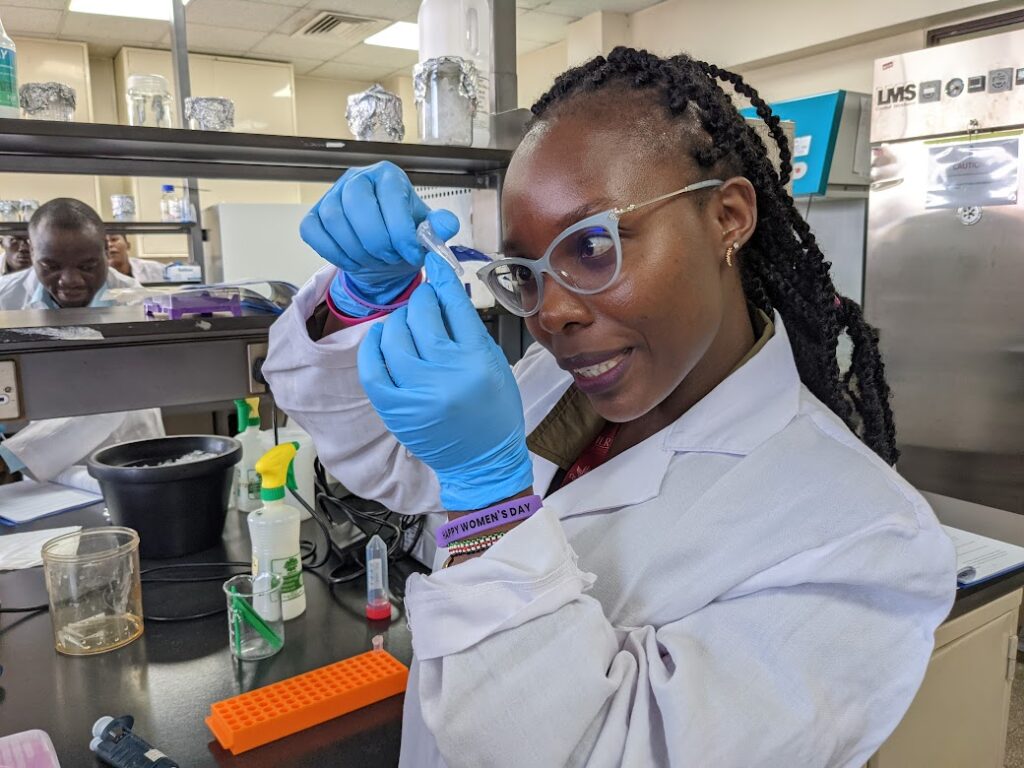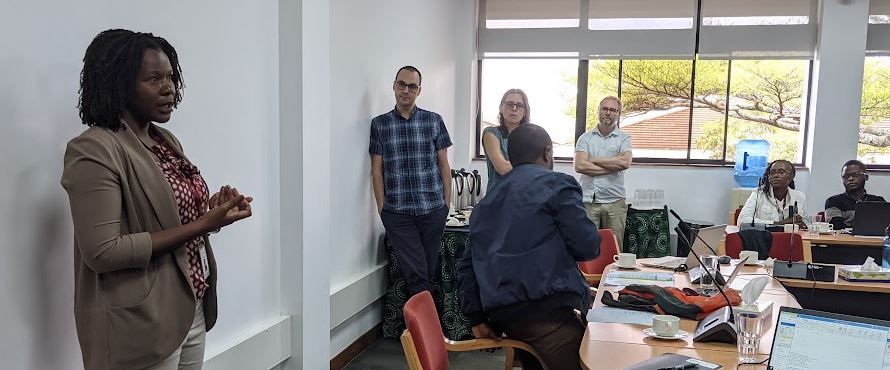Training Trainers: Building confidence
In March we ran the second half of our training programme in Kenya, bringing together expertise from Biosciences for Africa (B4A) Hub and UK experts to equip participants to pass on Vector and Virus Diagnostics skills within their own institutions.
As participants are members of their country’s National Agricultural Research Institute or System (NARS), governmental organisations which conduct research to improve agriculture, this capacity building will benefit 9 African countries in total.

How did the course go?
The first course in February was all about practical, hands-on skills development in Vector and Virus Diagnostics. This event in March was far more reflective, and built participants’ confidence in becoming engaging and effective trainers themselves.
It was great to see participants creating their own training materials (slides) about the techniques involved in DNA barcoding, including insect DNA extraction and PCR, gel electrophoresis and sequence analysis, which they then tested – using them to train their colleagues in these techniques.
The participants then went into the lab and trained each other using practical demonstrations of the techniques before moving on to teach various sequence analysis techniques.
Participants then provided feedback on their experience as a trainer and a trainee. Reflection and feedback are important aspects of the Train-the-Trainer course, particularly as the course involves peer-to-peer training. As one of the participants said: “It becomes easier to give feedback when you know someone better.”
The excellent group dynamics established will stand participants in good stead for the future, as they will be able to consult and support each other in their ongoing work and careers.
Closing remarks were given by Dr Cathrine Ziyomo, and then it was time for participants to return to their countries. The CONNECTED team, from the University of Bristol, Newcastle University and the Natural Resources Institute (University of Greenwich), returned to the UK where they began finalising all the course training materials. CONNECTED members can access these on our Vector and Virus Diagnostics web pages as a lasting resource.

